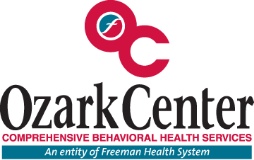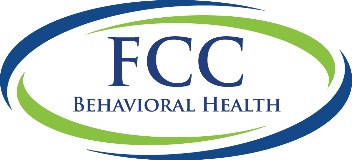About Job
Job Description Summary:
The Hybrid Community Support Specialist (CSS) Supervisor/QMHP within the Will’s Place program is responsible for maintaining standards of professional and ethical practice in the provision of therapeutic services. Staff member is responsible for supervising a team of CSSes as well as conducting intake assessments within our school, community, and office-based settings with children and youth who have been diagnosed with a qualifying mental health diagnosis. The staff member demonstrates a welcoming, empathic, hopeful attitude and conveys a philosophy of dual recovery. They are trained and/or experienced in working with mental illness and/or substance use and trained in trauma-informed care. They recognize that the individuals we serve often times have experienced trauma that affects their development and adjustment. They will work to provide services in an environment that is sensitive and responsive in order to prevent victimization, abuse, or trauma as a result of the care received. This hybrid role reports to the Clinical Director of Will’s Place and works closely with Center psychiatrists, CSSes, and therapists. If licensed, he/she may supervise unlicensed therapists and/or interns.
Education:
Master’s degree in Psychology, Social Work, or related field from an accredited college or university is required.
Preferred Qualifications:
Training and experience in the outpatient psychiatric setting is desirable, but also not required.
Responsibilities:
The Hybrid CSS Supervisor/QMHP is responsible for conducting assessments and supporting youth and their families in accessing the most appropriate and available services within Ozark Center. The Supervisor/QMHP performs intake interviews, hence identifying presenting problems and generating preliminary treatment plans for all new patients. The Supervisor/QMHP provides and bills crisis services for clients during regular daytime operations. The Supervisor/QMHP provides consultation and education to appropriate community groups and institutions on behavioral health topics upon approval by the Chief Executive Officer. The Supervisor/QMHP facilitates continuity of care between all program components of the Center. The Supervisor/QMHP will be assigned supervision responsibilities for CPR Community Support Specialists and as such will perform these duties in addition to the above duties: Hold regularly scheduled supervisory session with supervisees. Participate in the review of treatment plans. Review all critical intervention plans and situations in which plans were implemented and participate in case reviews of critical incidents. Assist supervisees in the effective management of their time, including assuring that each is within the acceptable range of staff to client ratio. Be readily available to serve as back-up to supervisees when supervisees are unavailable (due to being with other clients, sickness, vacation, etc. ) or in need of additional expertise. Become involved in crisis intervention as needed, including an on-call rotation basis during after-hours and weekends. Accompany CSS workers to see clients on a periodic basis to assure quality performance. Regularly review written documentation to assure compliance with documentation requirements and discuss QA and clinical issues with Director when they occur. Participate on the multi-disciplinary treatment team during intake process to include documentation of appropriateness of level of care for clients served. Report all critical incidents and staff response to the Supervisor. Evaluate each supervisee according to the performance evaluation guideline and ensure credentialing for each is done annually. Facilitate the employee discipline process as per policy and procedure as needed.
Physical Requirements:
Normal office environment coupled with remote working environment. Typical demands include prolonged sitting, frequent standing, bending, stooping, and occasional lifting. Requires normal range of hearing and manual dexterity sufficient to operate keyboard, telephone, photocopier, calculator, and other office equipment as needed. Requires ability to work under stressful situations, potentially work irregular hours, and manage conflict.
Professional Field
 Social Work
Social Work Other Behavioral, Mental, or Healthcare Field
Other Behavioral, Mental, or Healthcare FieldPatient Focus
Diagnoses
Avoidant Personality Disorder
Issues
Stress
Trauma
Age Groups
Children (5-10)
Preteens/Tweens (11-13)
Adolescents/Teenagers (14-19)
Therapeutic Approach
Methodologies
ECT
Modalities
Couples
Individuals
Practice Specifics
Populations
Individuals with Addiction Issues
Out-patient Psychiatric
Racial Justice Allied
School
Settings
Milieu
Partial Hospitalization (PHP)
Research Facilities/Labs/Clinical Trials
Telehealth/Telemedicine
Home Health/In-home
Sign up for job alertsGet daily alerts for jobs relevant to you, sent to your inbox









